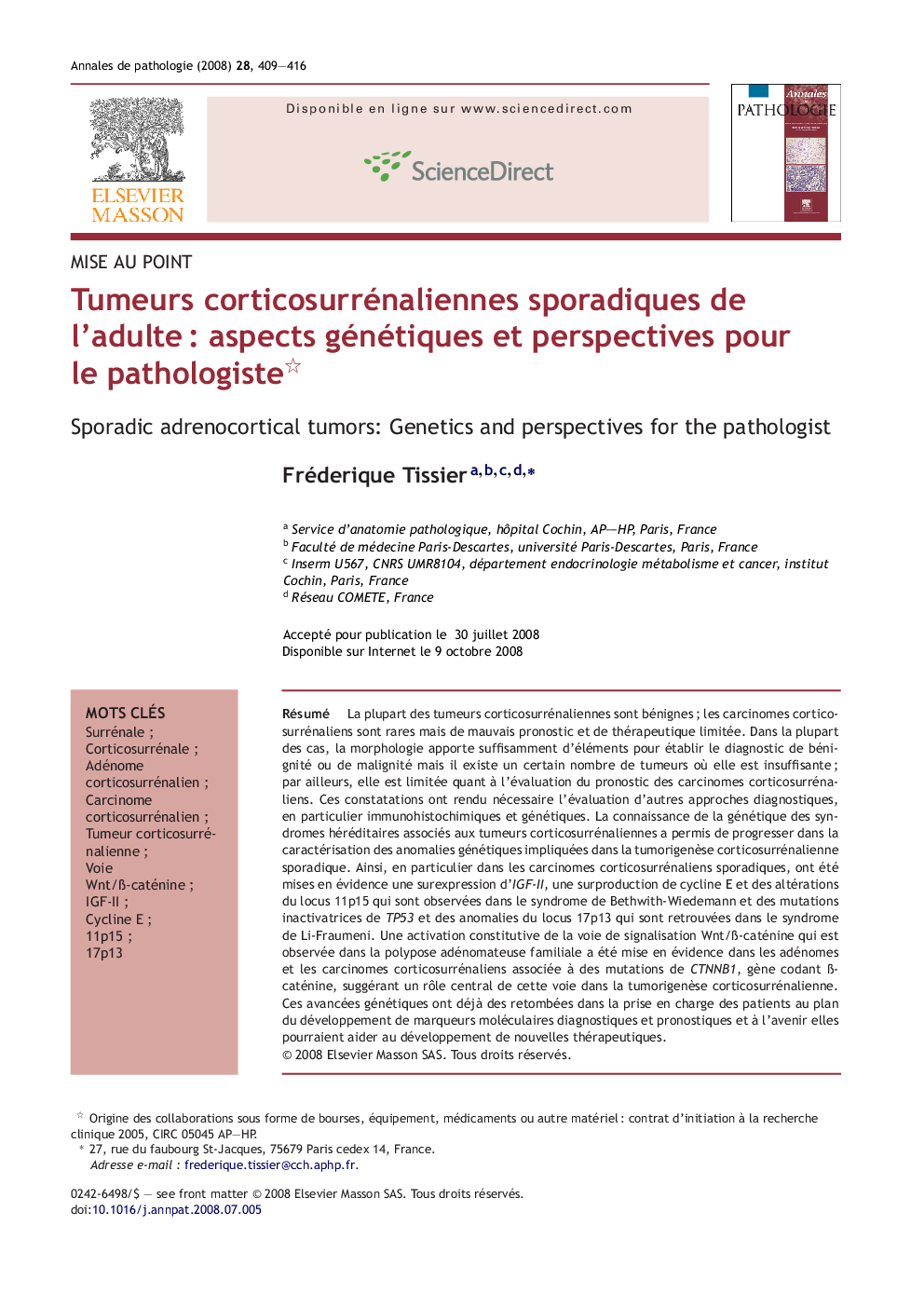| Article ID | Journal | Published Year | Pages | File Type |
|---|---|---|---|---|
| 4129259 | Annales de Pathologie | 2008 | 8 Pages |
Abstract
Most adrenocortical tumors are benign; adrenocortical carcinomas are rare but their prognosis is poor and few therapeutic options are available. In most adrenocortical tumors, the morphological approach provides enough elements to establish the differential diagnosis between a benign and a malignant tumor but in few cases, it is insufficient. Moreover, morphology is limited for predicting prognosis of adrenocortical carcinomas. These observations led to development of other approaches, in particular immunohistochemical and genetic approaches. The comprehension of the genetic syndromes associated with adrenocortical tumors led to progress in the identification of genetic abnormalities involved in sporadic adrenocortical tumorigenesis. Thus, in sporadic adrenocortical tumorigenesis, IGF-II overexpression and cyclin E overproduction have been associated with 11p15 alterations which are observed in Bethwith-Wiedemann syndrome and TP53 inactivating mutations and 17p13 locus abnormalities which are observed in Li-Fraumeni syndrome. Activation of the Wnt/Ã-catenin signaling pathway which is observed in familial adenomatous polyposis has been found in adrenocortical adenomas and carcinomas associated to mutations of CTNNB1, the gene coding Ã-catenin, suggesting a central role for this pathway in adrenocortical tumorigenesis. These genetics findings already have had repercussions for patients via the development of molecular markers for diagnosis and prognosis; in the future they should be helpful in the development of new therapeutics.
Related Topics
Health Sciences
Medicine and Dentistry
Pathology and Medical Technology
Authors
Fréderique Tissier,
